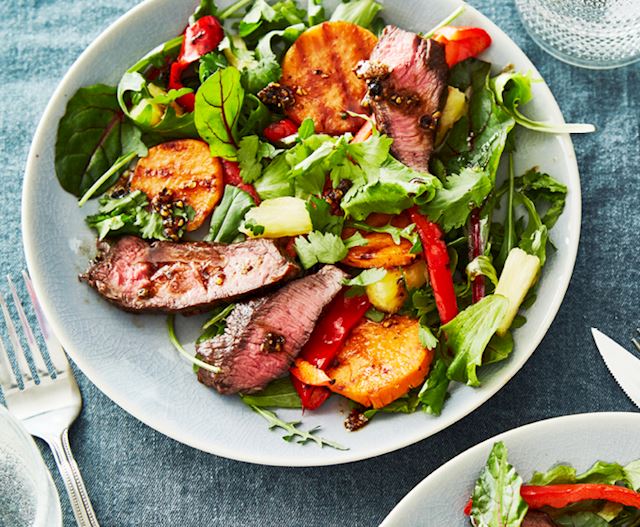
We have strong dietary habits. Many are good (“I always eat breakfast”), some are not good (“I always wash the dishes”). While many eating habits started in childhood, it doesn’t mean it’s too late to change them.
Sudden, radical changes in eating habits, such as only eating cabbage soup, can cause short-term weight loss. However, this fundamental change is neither healthy nor a good idea and will not succeed in the long run.
If you want to permanently improve your eating habits so it must require a thoughtful approach in which you can reflect, replace and reinforce.
- Reflect Think about all your good and bad eating habits; also about common incentives for your unhealthy diet.
- Replace unhealthy eating habits with healthy eating habits.
- Reinforce new healthy eating habits.
Reflect:
1. Make a list of your eating habits. Keep a food diary for a few days. Write down everything you eat and what time of day.
This will help you discover your habits. For example, you may be looking for sweets to survive the afternoon energy drop.
It’s best to write down how you feel when you decide to eat, especially if you’re not hungry.
Are you tired? Is it stressed?
2. Highlight the habits that can cause you to overeat on the list. Common eating habits that can cause weight gain include:
- Eat too fast
- Always clean dishes
- Eat when you are not hungry
- Standing eating (can cause blind eating or eating too fast)
- Always eat dessert
- Skipping meals (or maybe just breakfast)
3. Check the unhealthy eating habits you are stressing. Make sure you have identified all the triggers that led you to develop these habits. First, determine what you want to improve.
Don’t forget to pat yourself on the back for doing the right thing for yourself. You may usually eat fruit for dessert or drink low-fat or fat-free milk. These are good habits! By acknowledging your success, you are encouraged to make more changes.
4. Make a list of “clues” by looking at the food diary to better understand the time and place of eating caused by hunger. Please pay attention to your usual feelings.
For reasons that do not starve, “cues” from the environment or specific emotional states are often encouraged.
5. Common causes of eating when you are not hungry include:
- Open the cupboard and look at your favourite snack foods.
- Sitting at home watching TV.
- Before or after a stressful meeting or work situation.
- Go home after work and don’t know what food is.
- If someone is asked to give you a dish, they will “tailor it for you!”
- Walk past the candy box on the counter.
- Sitting in the lounge next to the machine.
- Saw a plate of doughnuts during the morning staff meeting.
- Swing on your favourite road every morning.
- I feel bored or tired and think food can help me.
6. Circle the “clues” you want to see each day or week on the list. The Thanksgiving holiday can lead to overeating but now focus on the problems you often encounter. Ultimately, you want to have as many diet tips as possible.
7. For each “tip” you have circled, ask yourself the following questions:
Is there any way to avoid prompts or situations? This option is best for tips that don’t involve other people.
For example, can you choose a different way of working so as not to stop at a fast-food restaurant on the way? There are other places to sit in the lounge so aren’t you next to the machine?
Can I do something healthier for things I can’t avoid?
Of course, you cannot avoid all situations that cause unhealthy eating habits, such as staff meetings. In that case, consider your options.
- Can you suggest or bring healthier snacks or drinks?
- Can you take notes to distract you?
- Can you move food further away so it won’t be that easy to get things?
- Can you plan ahead of the meeting and eat some healthy snacks?
to Replace – to Reinforce
1. Replace unhealthy habits with new healthy ones. For example, when you think about your eating habits, you may realize that eating alone is too fast.
So promise to share lunch with colleagues every week, or dinner with neighbours once a week.
Another strategy is to place the fork between the two bites. In addition, try to keep distractions to a minimum, such as watching the news while eating. This distracting attention prevents you from focusing on the speed and amount of food.
Eat slowly. If you eat too quickly, you can “do the dishes” without noticing whether your hunger has been satisfied.
2. Only eat when you are really hungry, not when you are tired, anxious or hungry.
If you find yourself eating while experiencing other emotions in addition to hunger (such as boredom or anxiety), try to find a non-eating activity instead. You may find that a short walk or a phone call with a friend helps you feel better.
3. Plan your meals in advance to make sure you are eating healthy and balanced meals.
And if you are over the age of 55 and want a guaranteed plan for losing 13 pounds of fat or more, EVERY SINGLE MONTH, Just Click Here!